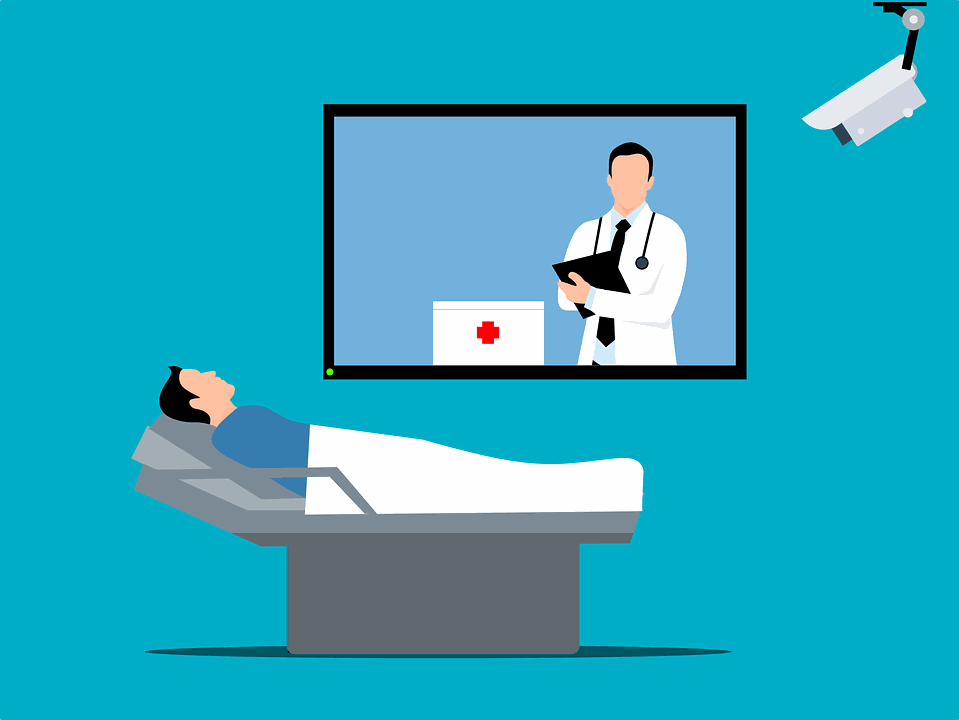Book Appointment Now

Telemedicine in Healthcare
The rapid advancement of technology, coupled with the global health challenges posed by the COVID-19 pandemic, has revolutionized the way healthcare is delivered. Telemedicine in healthcare has emerged as a vital tool, enabling healthcare providers to offer remote patient care efficiently. This article explores the benefits and challenges of telehealth in nursing, the impact of telemedicine on patient outcomes, and the importance of training nurses for telehealth services.
Do you need paper writing help about telehealth in nursing? ![]()
The Rise of Telemedicine in Healthcare
Telemedicine refers to the use of technology to provide medical care remotely. While it has been around for years, the COVID-19 pandemic accelerated its adoption, transforming it from a niche service into a mainstream aspect of healthcare delivery.
What is Telemedicine?
Telemedicine involves the use of communication technologies, such as video conferencing, phone calls, and mobile apps, to provide clinical services to patients without requiring an in-person visit. This approach has become particularly valuable in reaching patients in remote areas, managing chronic conditions, and reducing the risk of infection during pandemics.
- Remote Patient Monitoring: Allows healthcare providers to monitor patients’ health data from a distance, using wearable devices and mobile apps.
- Virtual Consultations: Enables doctors and nurses to conduct appointments online, offering convenience and reducing the need for travel.
Challenges and Benefits of Telehealth in Nursing
Telehealth in nursing presents a unique set of challenges and benefits that are reshaping the landscape of patient care. Understanding these can help healthcare professionals make the most of this evolving technology. Check out HCS 420 UP Benefits and Risks of Using Technology in Healthcare essay assignment.
Benefits of Telemedicine
The advantages of telemedicine in healthcare are numerous, particularly in improving access to care and enhancing patient outcomes.
- Increased Access to Care: Telemedicine breaks down geographical barriers, allowing patients in remote or underserved areas to receive care without the need for travel.
- Cost-Effective Care: Remote patient care reduces the costs associated with hospital visits, both for patients and healthcare providers.
- Continuity of Care: Telehealth allows for continuous monitoring and follow-up, especially for patients with chronic conditions, ensuring they receive timely care.
Challenges of Telehealth in Nursing
Despite its benefits, telehealth also poses several challenges that need to be addressed to optimize its effectiveness.
- Technological Barriers: Not all patients have access to the necessary technology or the skills to use it effectively, which can limit the reach of telemedicine.
- Data Security Concerns: The use of digital platforms for healthcare raises concerns about the privacy and security of patient information.
- Limited Physical Examination: Certain aspects of patient care, such as physical examinations, are difficult to perform remotely, potentially impacting the accuracy of diagnoses.
Telemedicine’s Impact on Patient Outcomes
One of the most significant aspects of telemedicine is its impact on patient outcomes. By offering continuous and convenient care, telemedicine has the potential to improve health outcomes, particularly for those with chronic conditions or limited access to traditional healthcare.
Positive Outcomes
Telemedicine has been shown to positively impact patient outcomes in several ways:
- Improved Management of Chronic Conditions: Remote patient monitoring allows for better management of chronic diseases, such as diabetes and hypertension, by enabling regular tracking of vital signs and symptoms.
- Reduced Hospital Readmissions: By providing timely interventions and follow-up care, telehealth can reduce the likelihood of hospital readmissions, which is beneficial both for patients and healthcare systems.
- Enhanced Patient Engagement: Patients are more likely to engage with their healthcare providers and adhere to treatment plans when care is easily accessible through telehealth platforms.
Areas for Improvement
While telemedicine offers many benefits, there are areas where its impact on patient outcomes could be improved:
- Addressing Digital Literacy: Ensuring that patients are comfortable with and capable of using telehealth technology is crucial for maximizing its effectiveness.
- Enhancing Patient-Provider Communication: While telemedicine facilitates remote interactions, maintaining the quality of patient-provider communication is essential for delivering effective care.
Training Nurses for Telehealth Services
As telemedicine continues to grow, the need for specialized training for nurses becomes increasingly important. Nurse telehealth training ensures that healthcare providers are equipped with the skills necessary to deliver high-quality remote care.
Key Components of Telehealth Training
Effective telehealth training for nurses should cover a range of topics, including:
- Technical Proficiency: Nurses must be trained in the use of telehealth platforms and technologies to ensure smooth and effective communication with patients.
- Clinical Adaptation: Adapting traditional nursing practices to the telehealth environment, including remote assessment techniques and patient education.
- Ethical and Legal Considerations: Understanding the ethical and legal implications of telemedicine, particularly regarding patient privacy and data security.
The Future of Telemedicine in Nursing
As telemedicine becomes an integral part of healthcare, nursing education programs will increasingly incorporate telehealth training into their curricula. This will ensure that future nurses are well-prepared to meet the challenges and opportunities presented by remote patient care.
Telemedicine in healthcare is transforming the way care is delivered, offering both challenges and opportunities for nurses and other healthcare providers. By understanding the benefits of telemedicine, addressing its challenges, and investing in nurse telehealth training, the healthcare industry can continue to improve patient outcomes and expand access to care. For nursing students and professionals, mastering telehealth in nursing is becoming an essential skill, one that will play a crucial role in the future of healthcare.
Also read:







